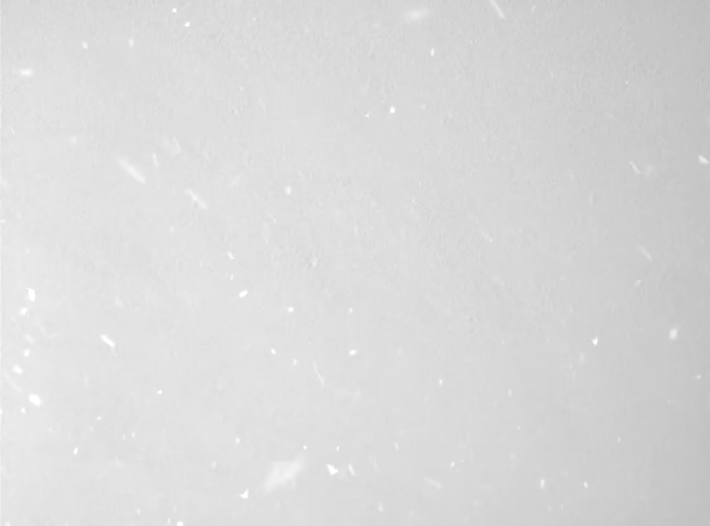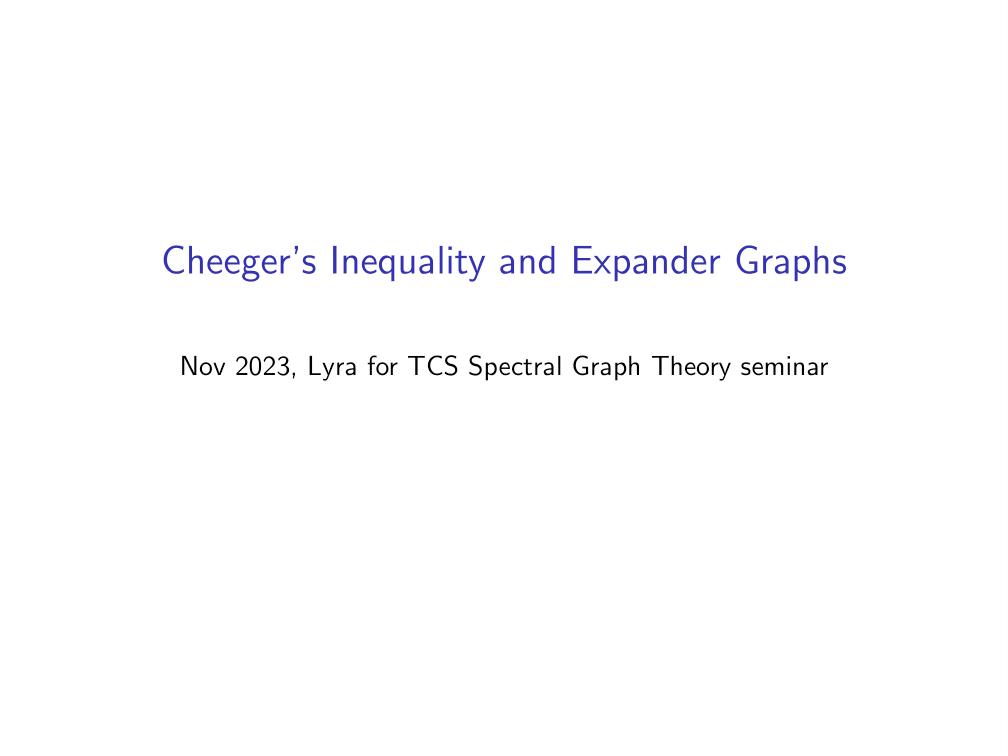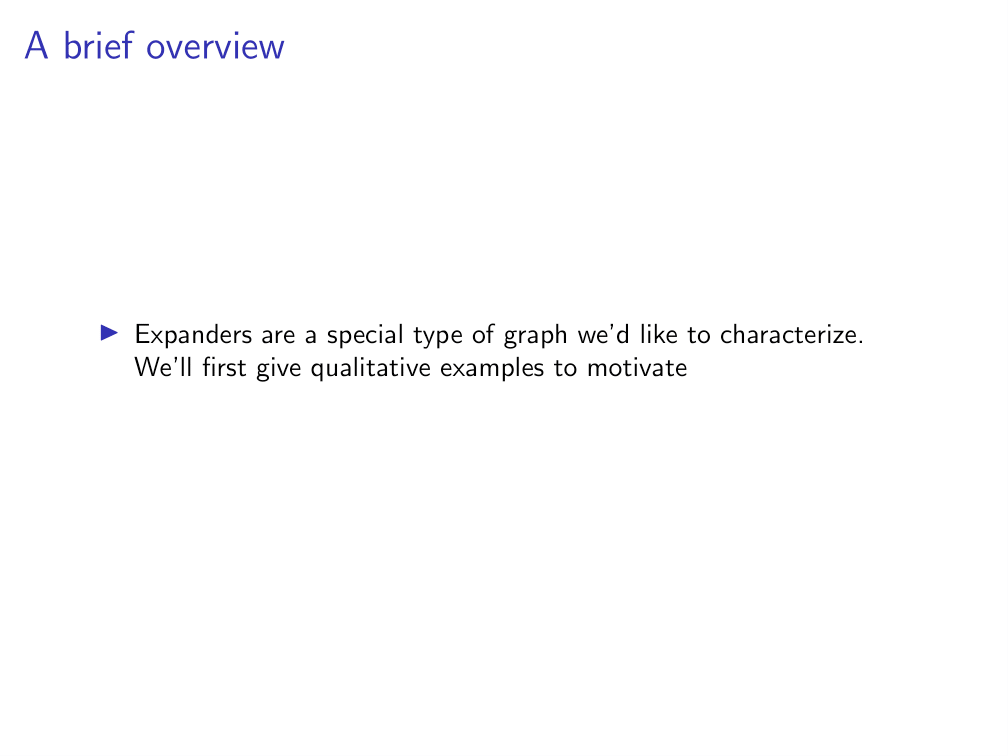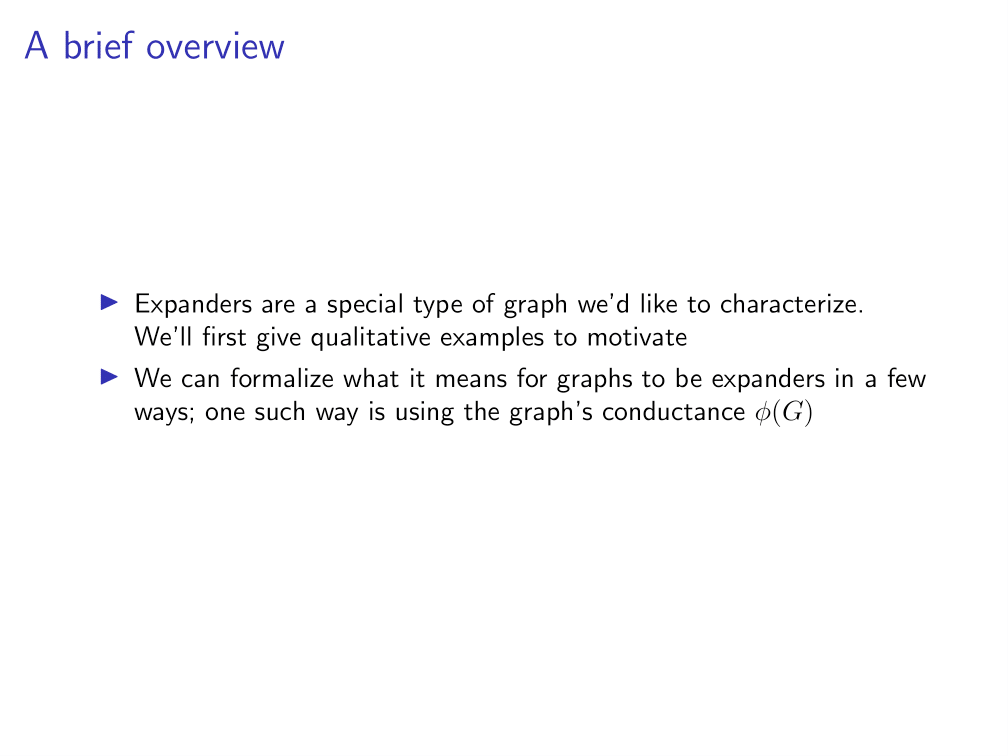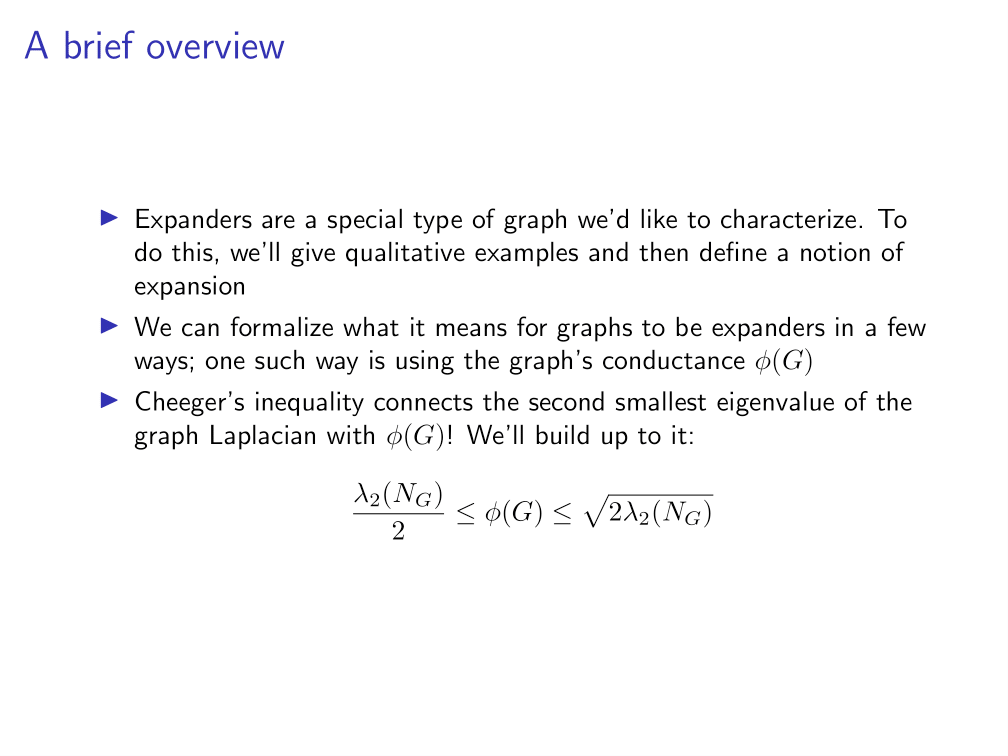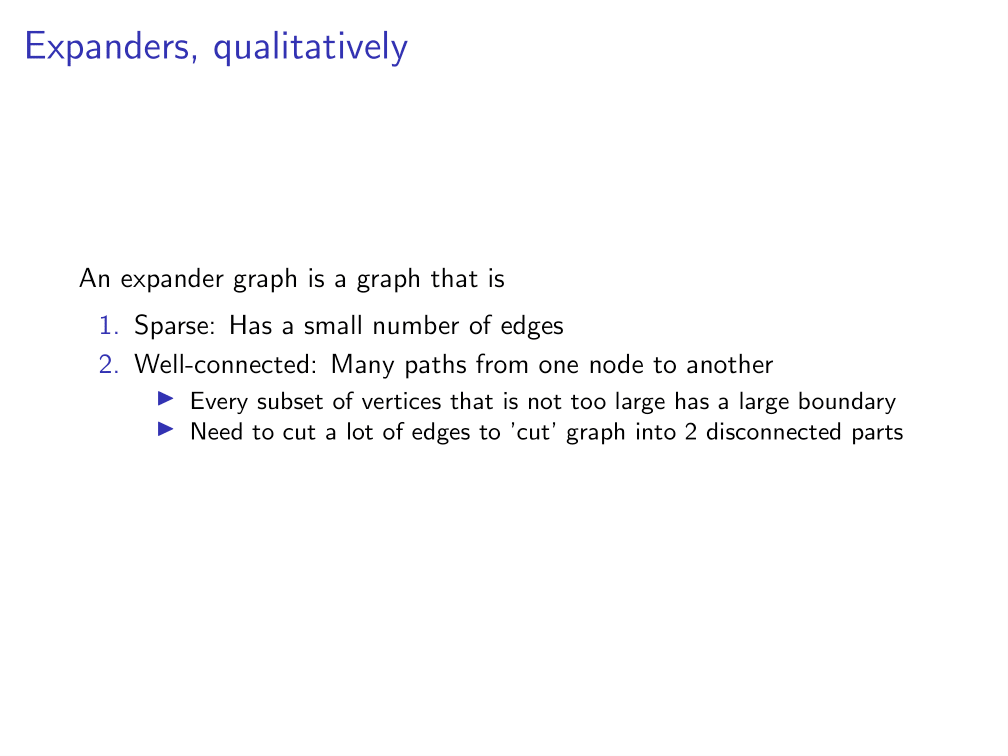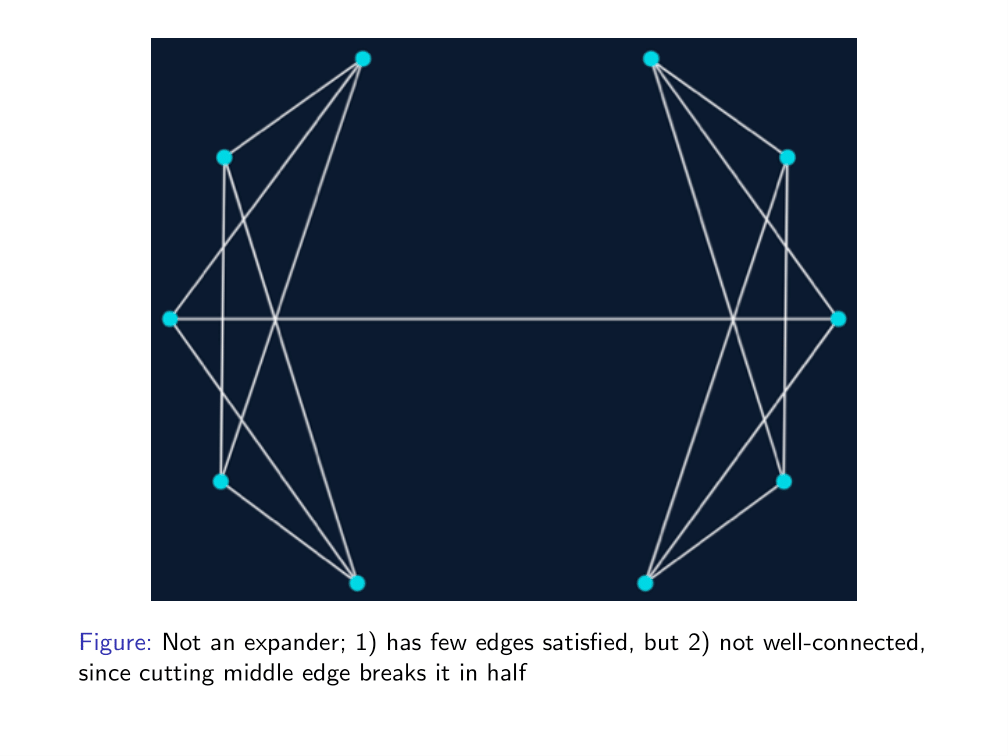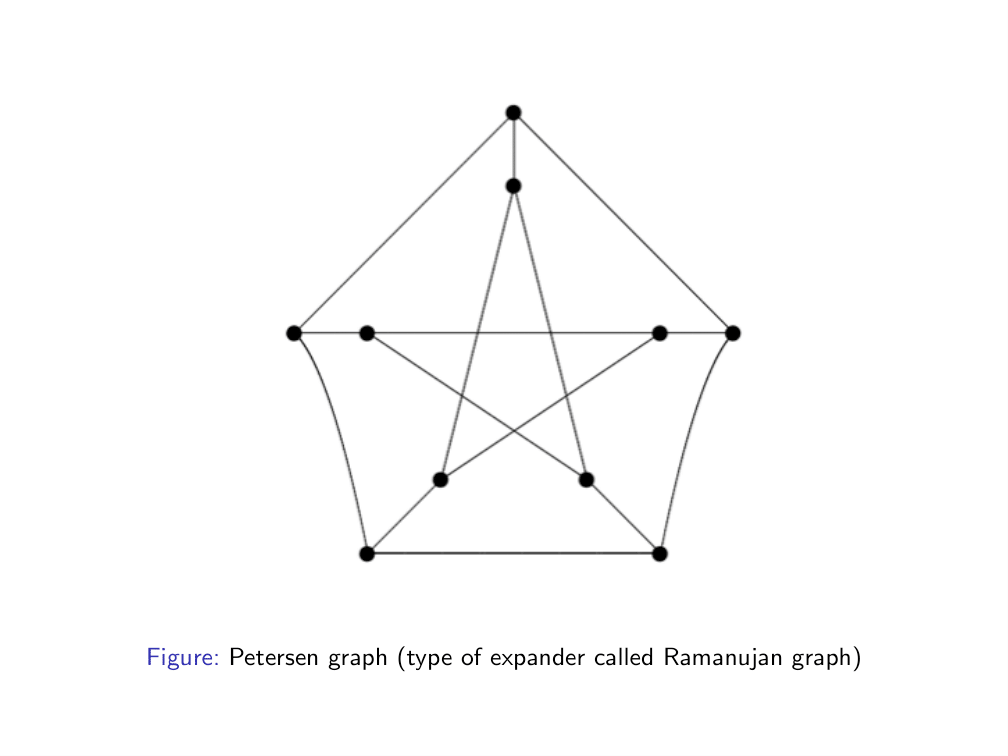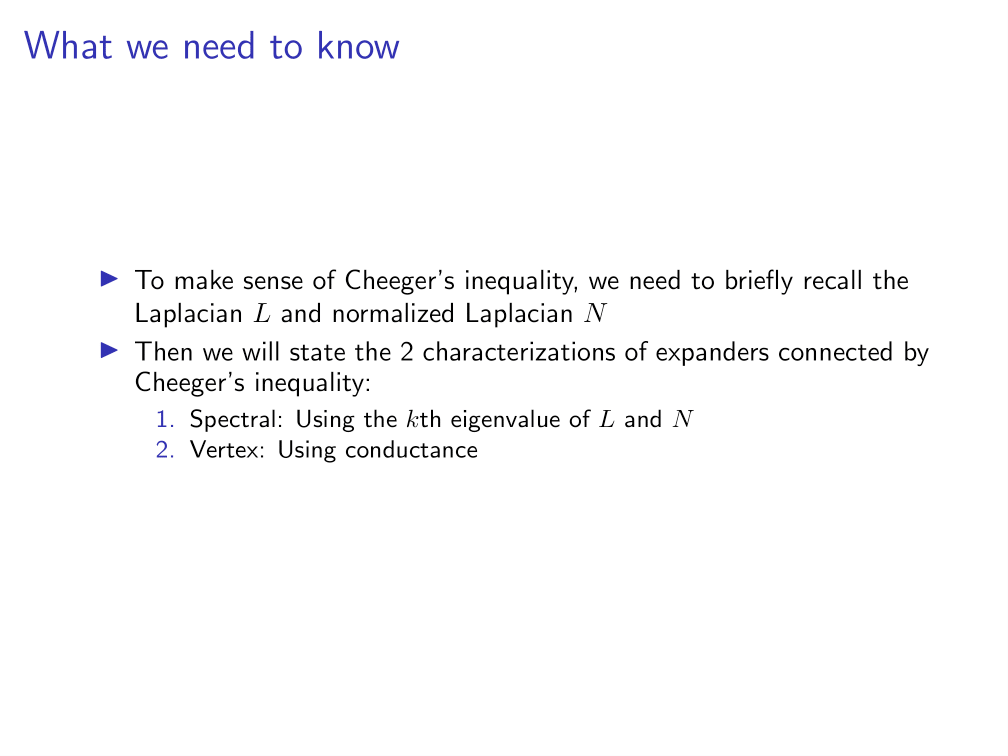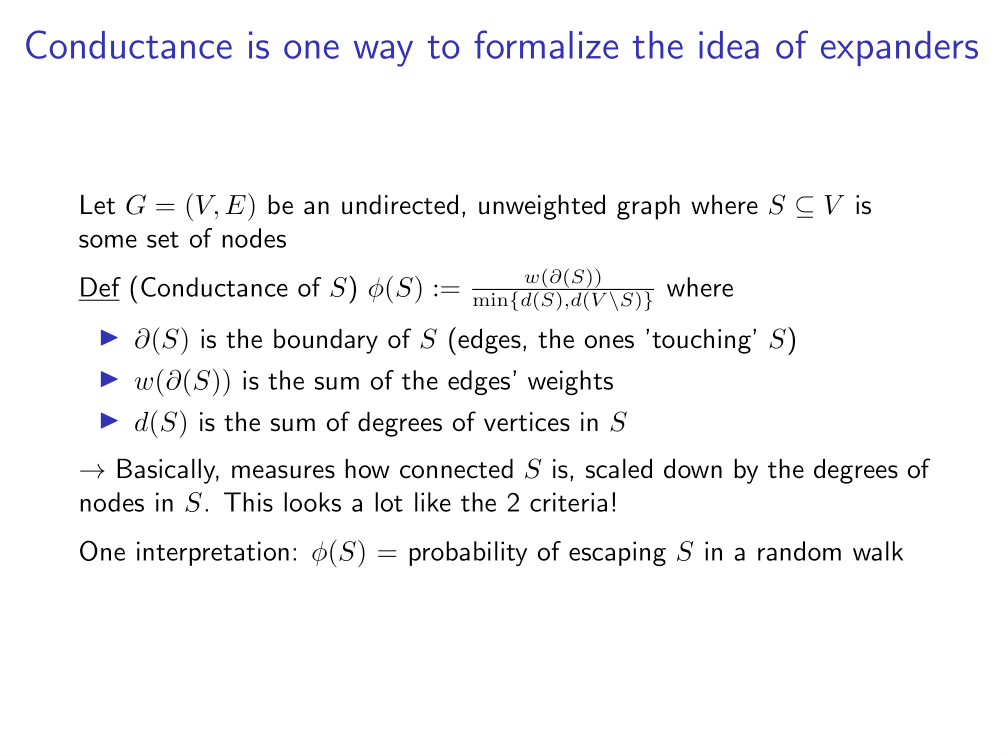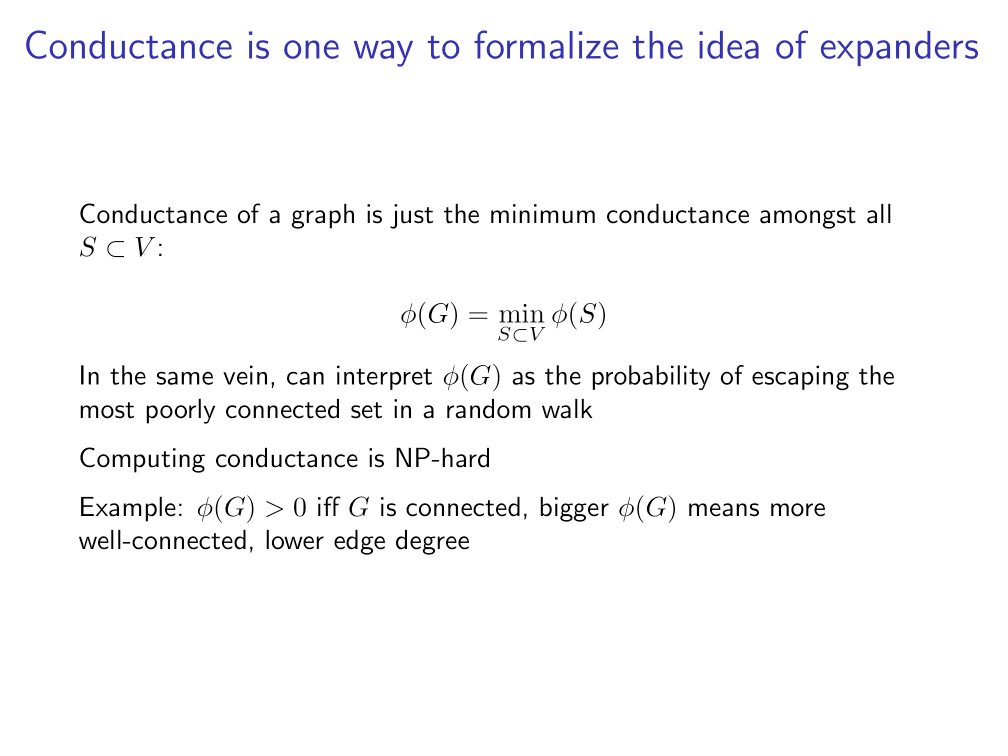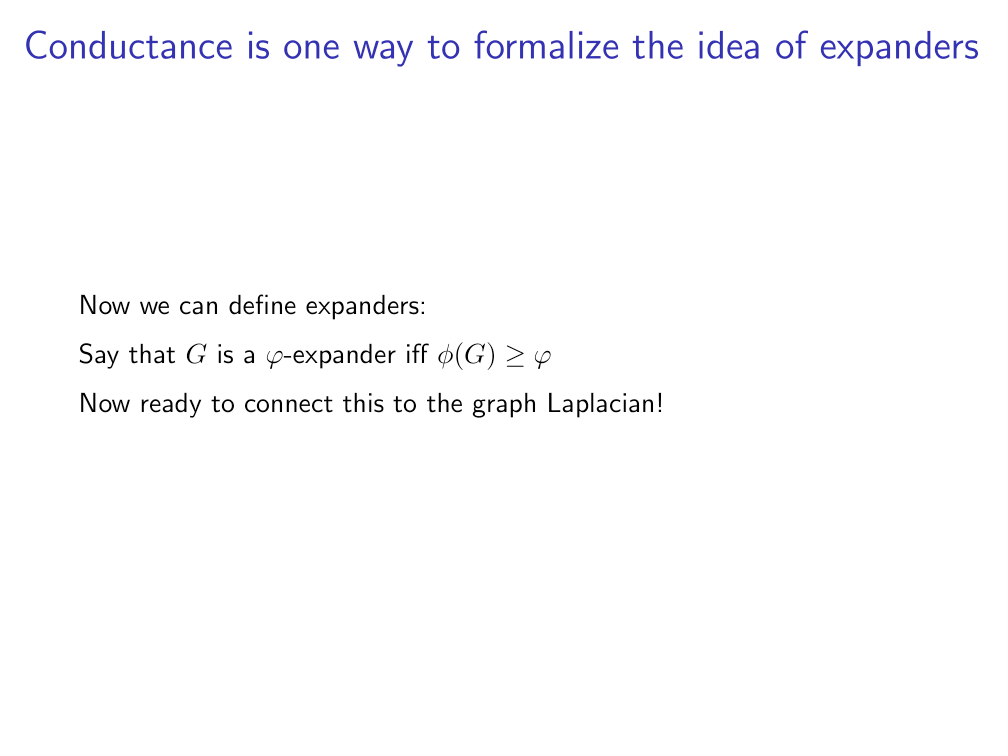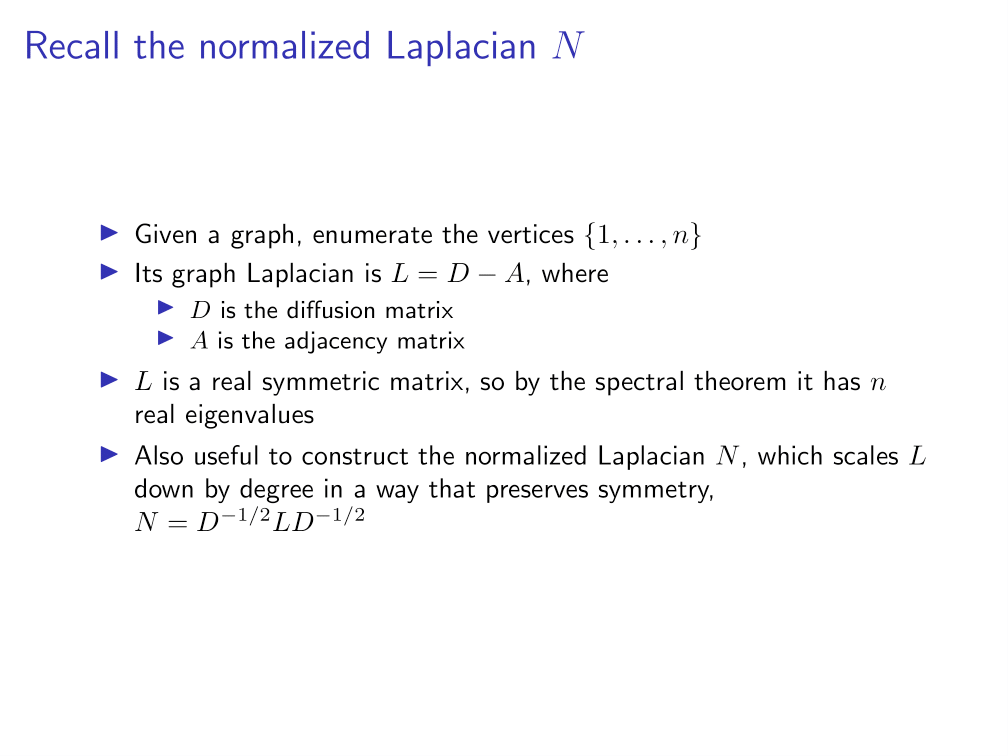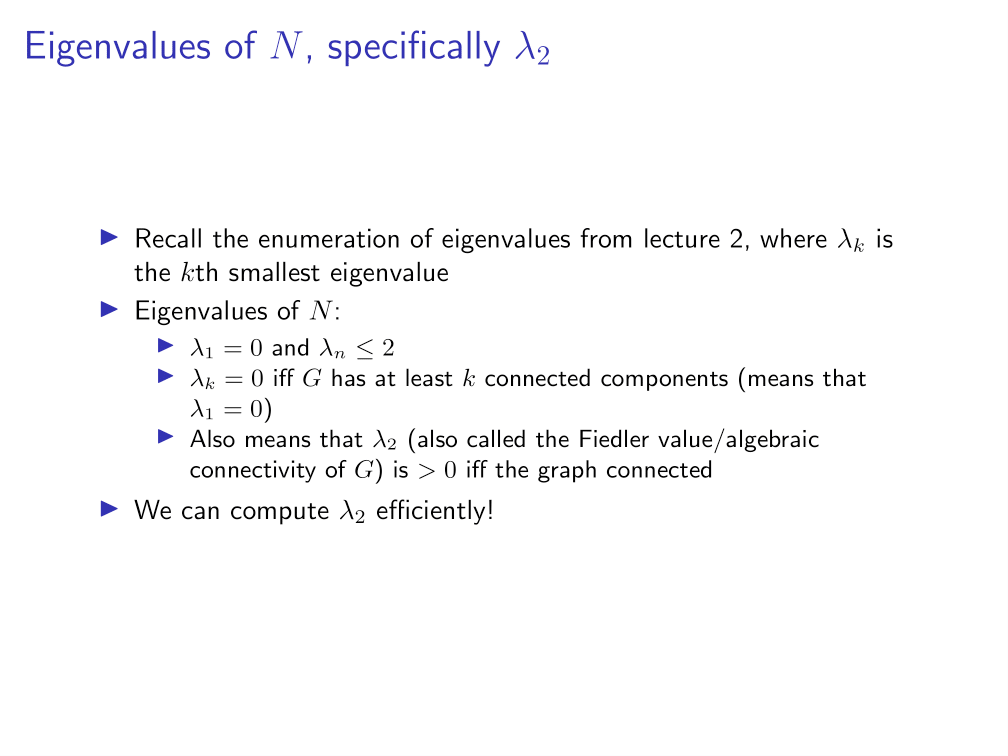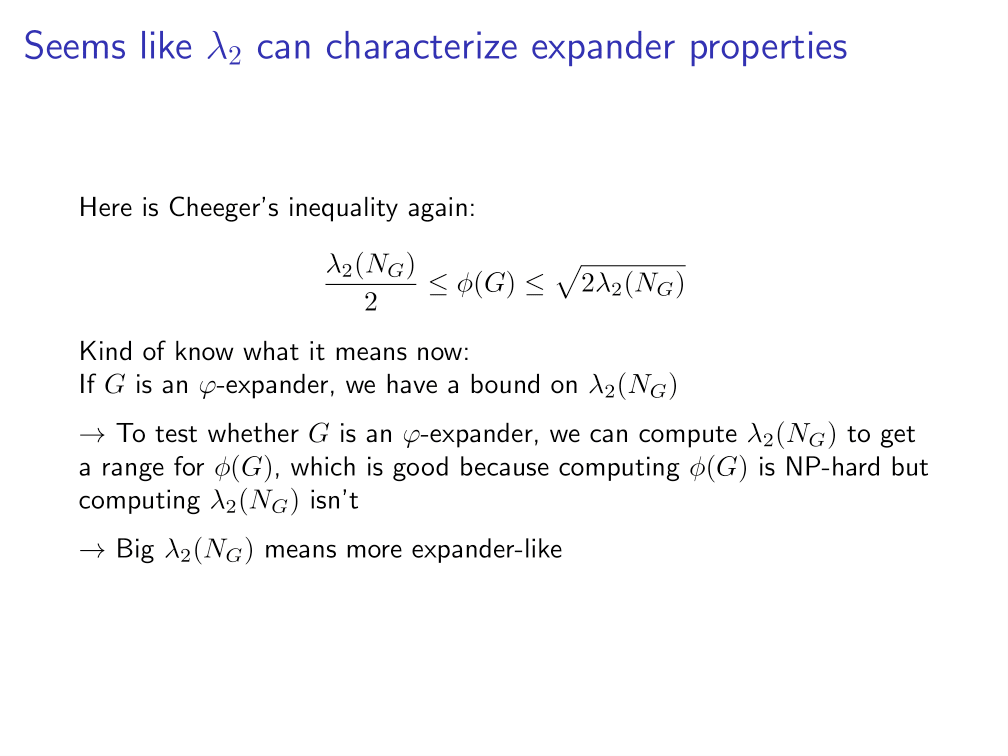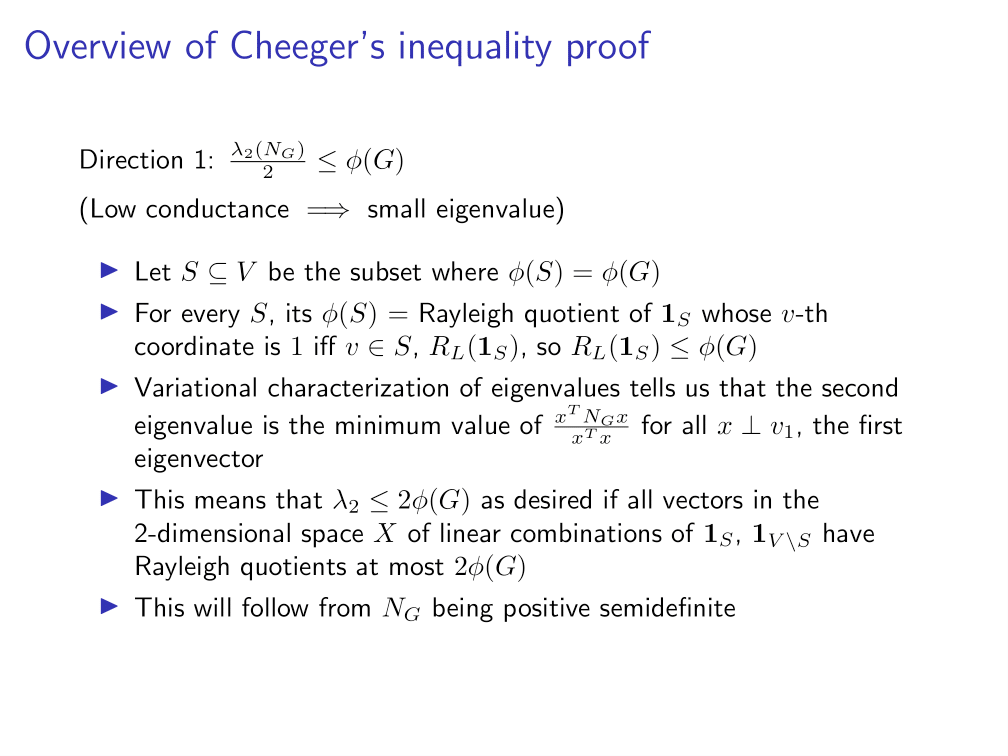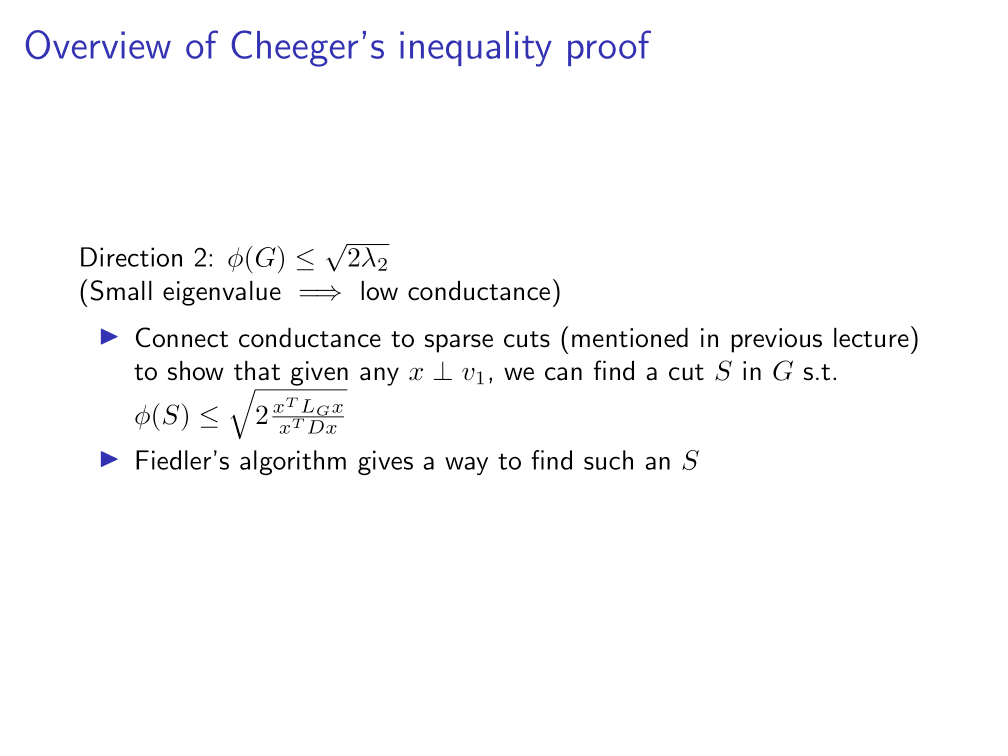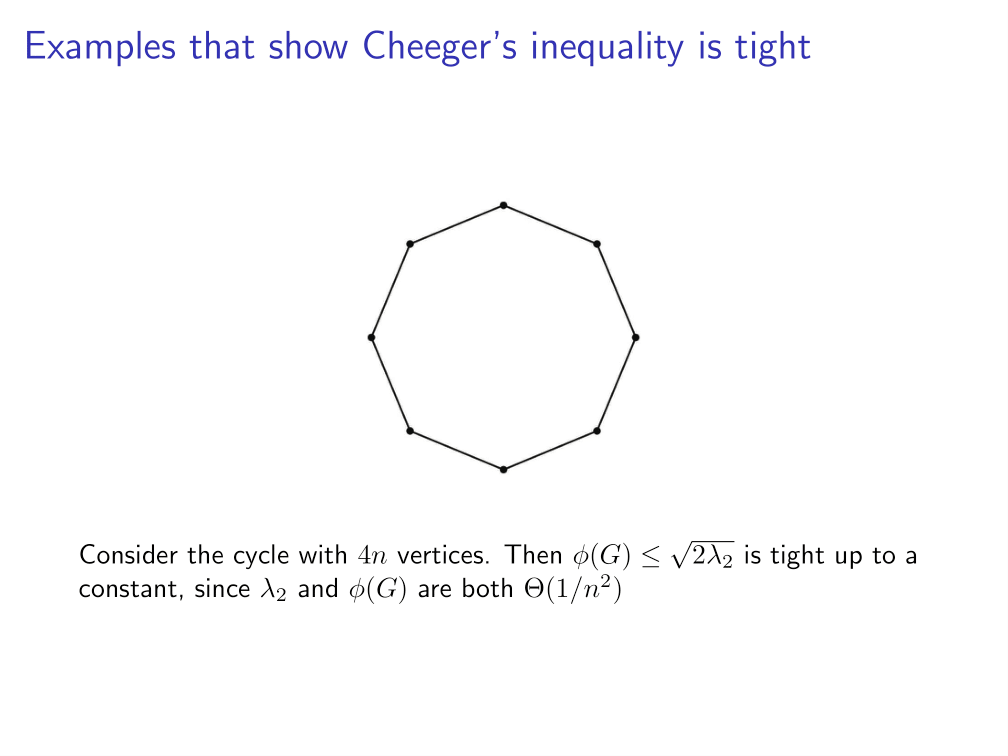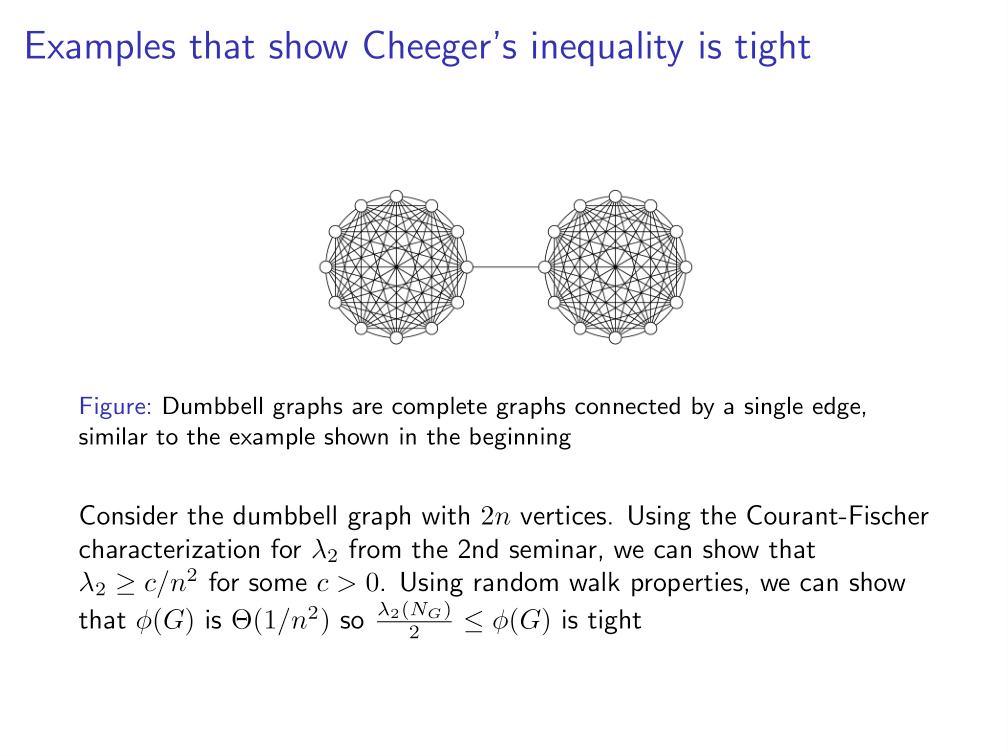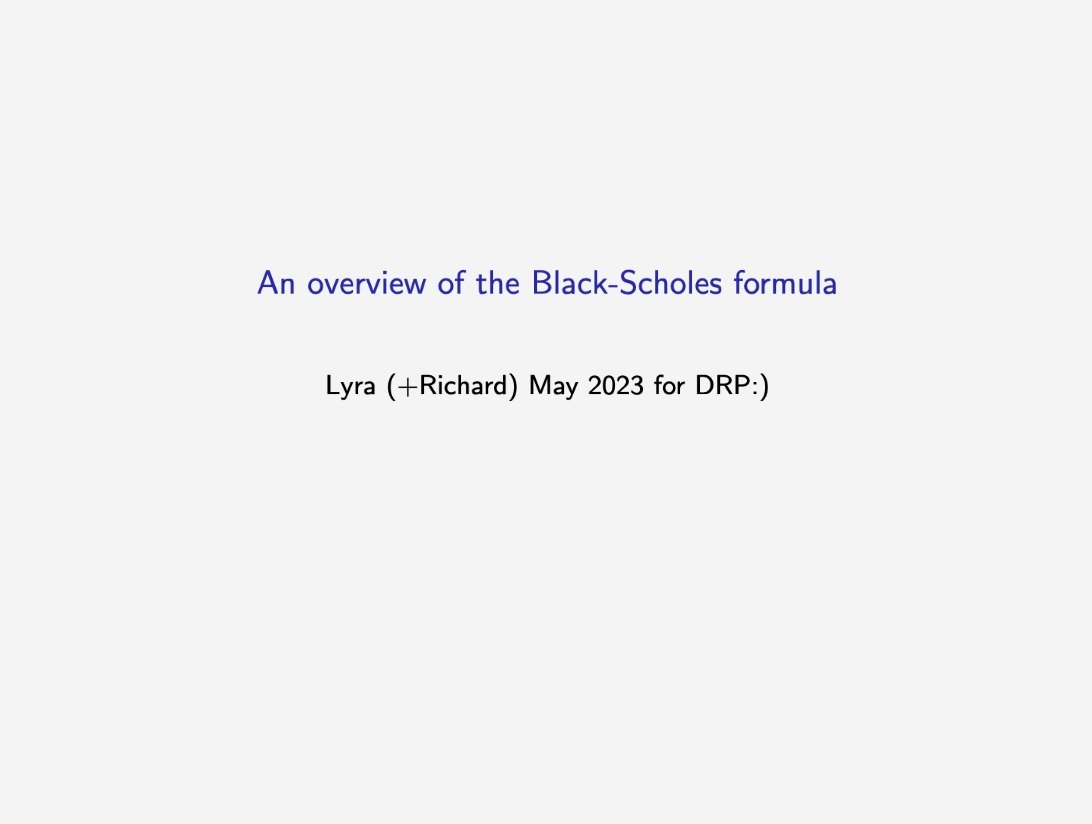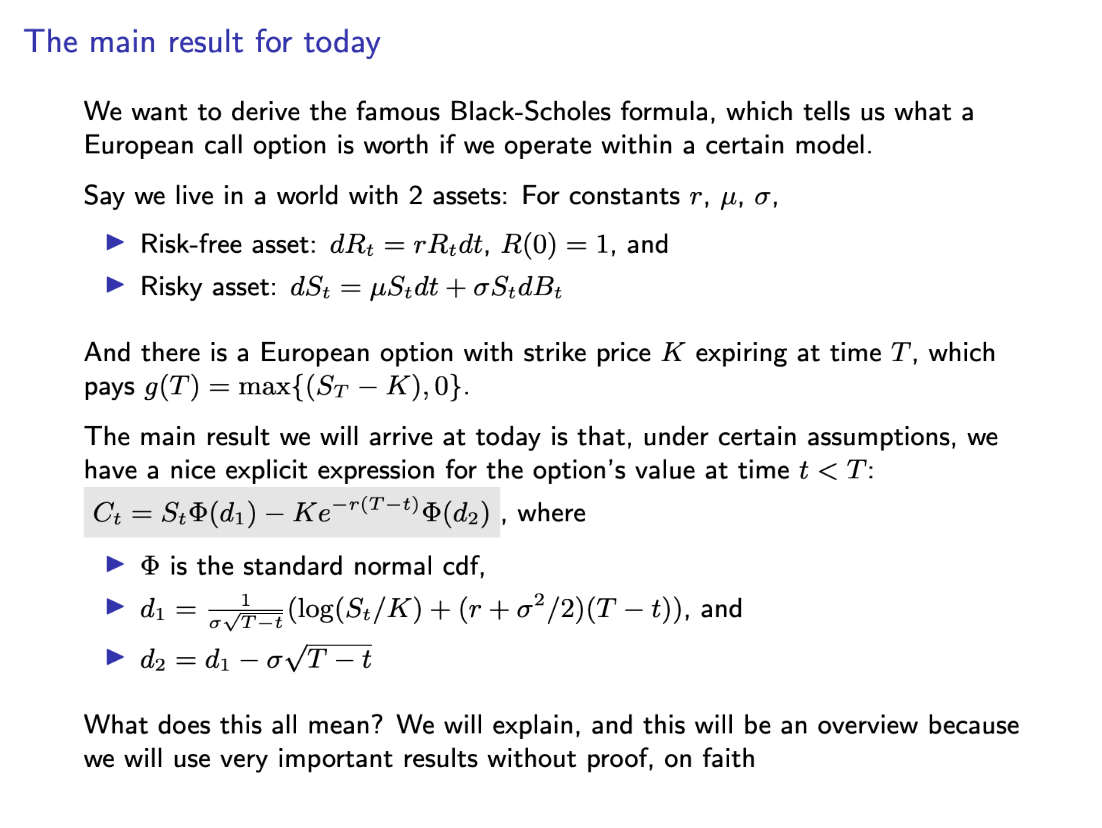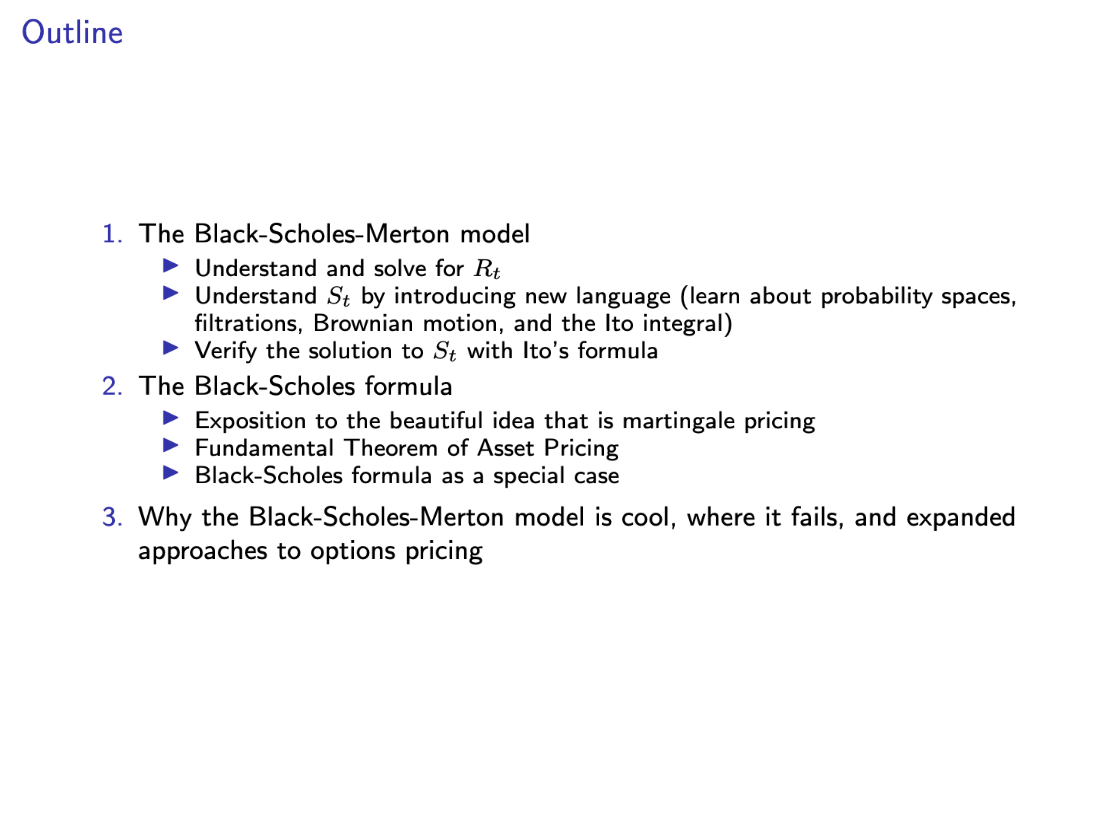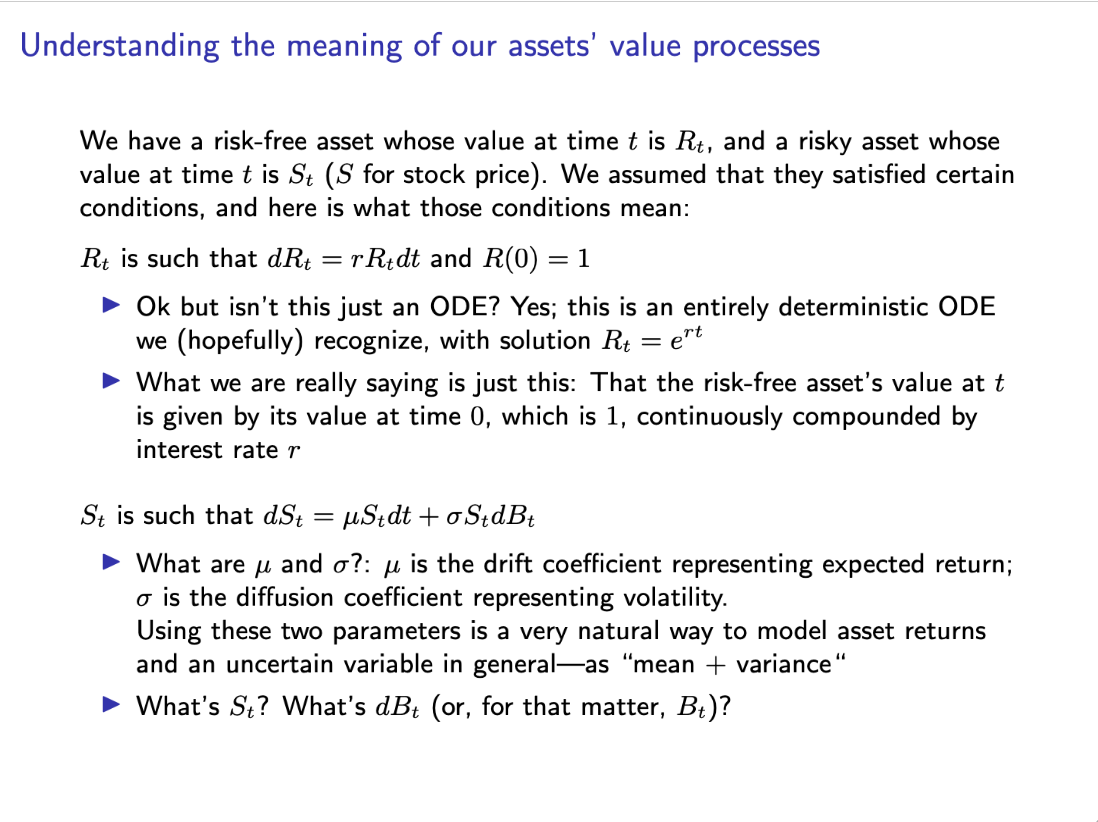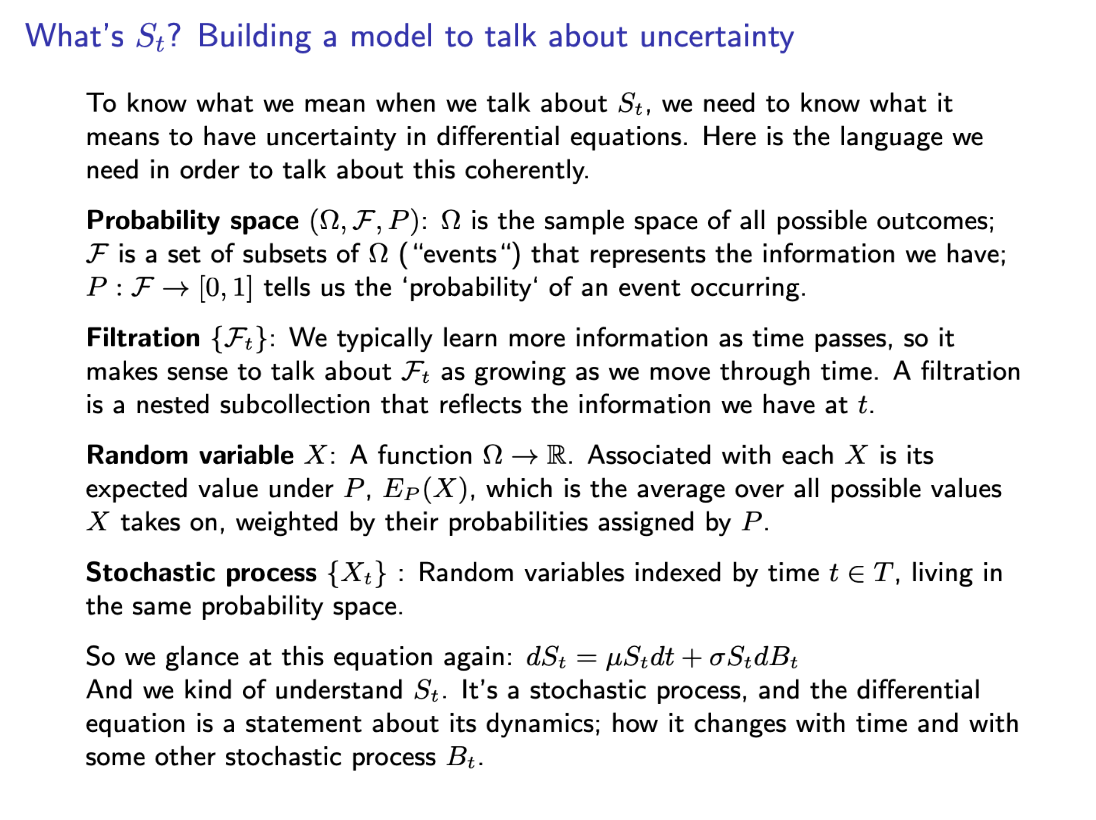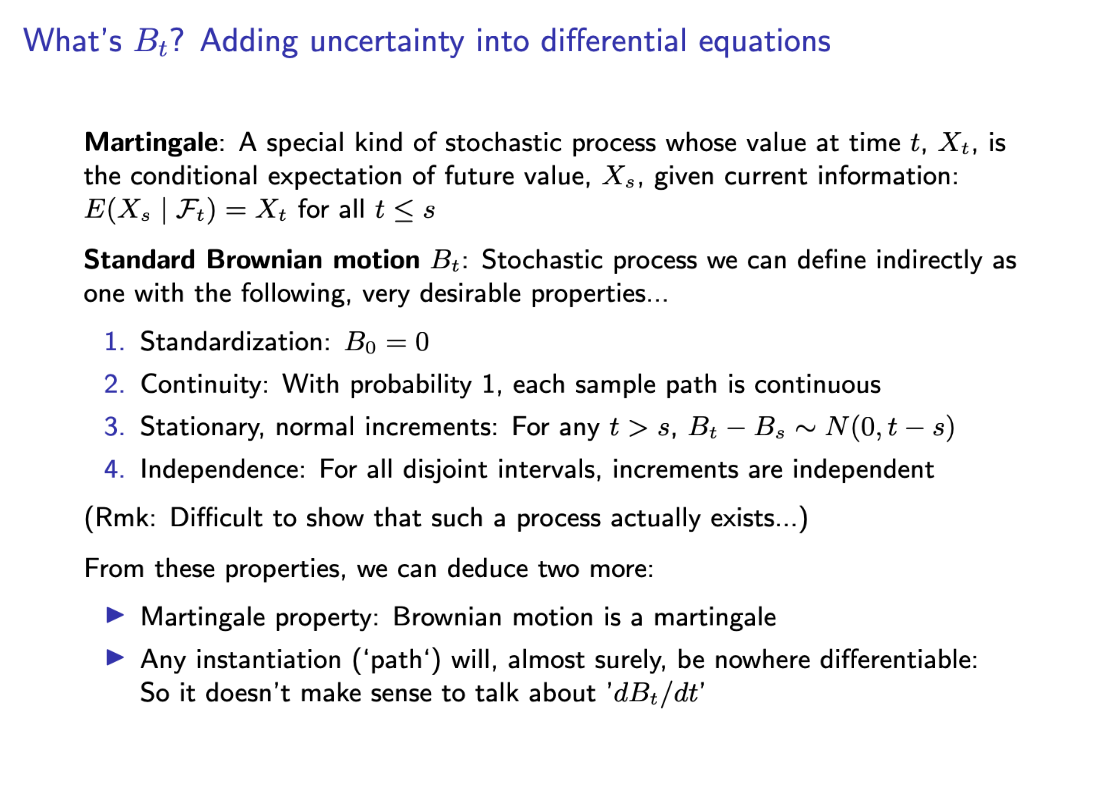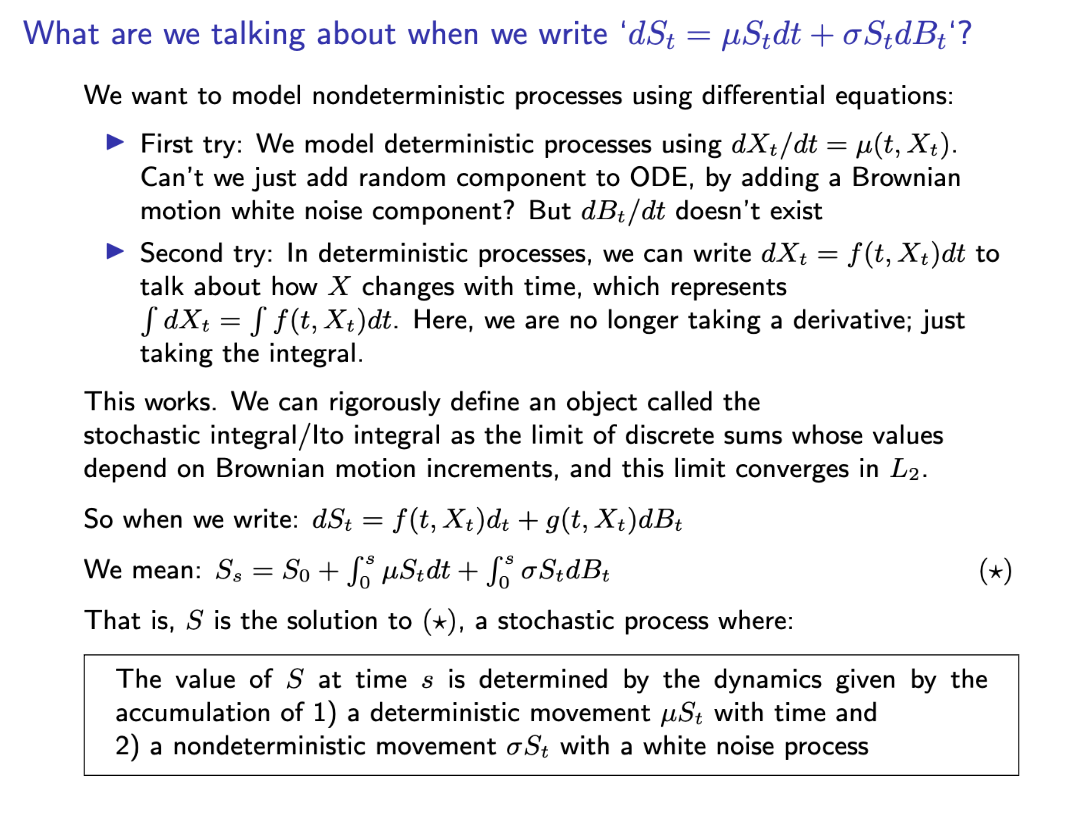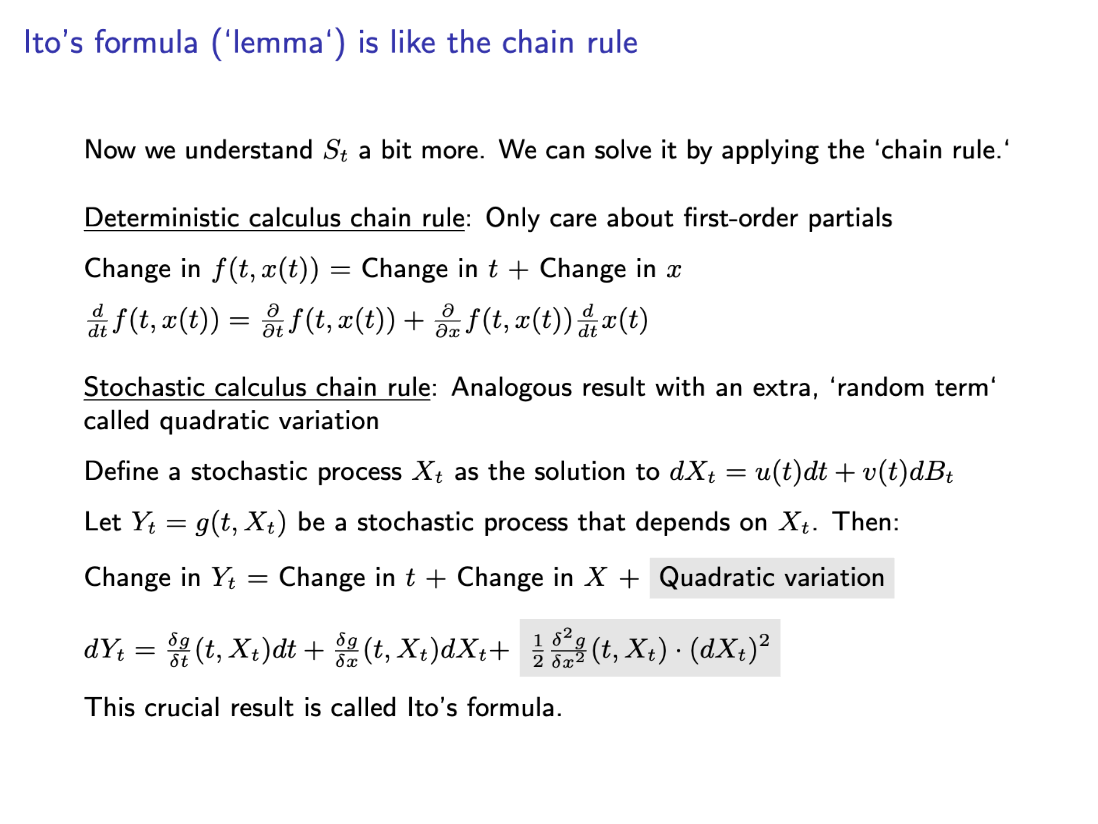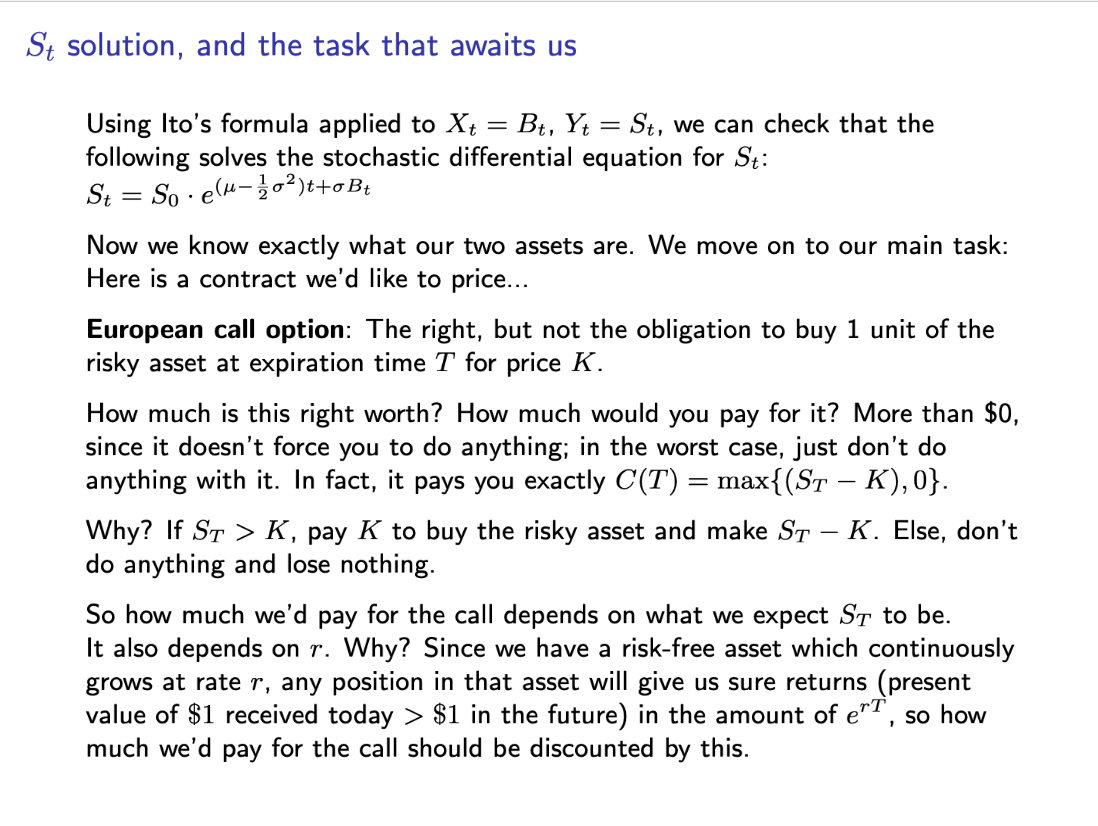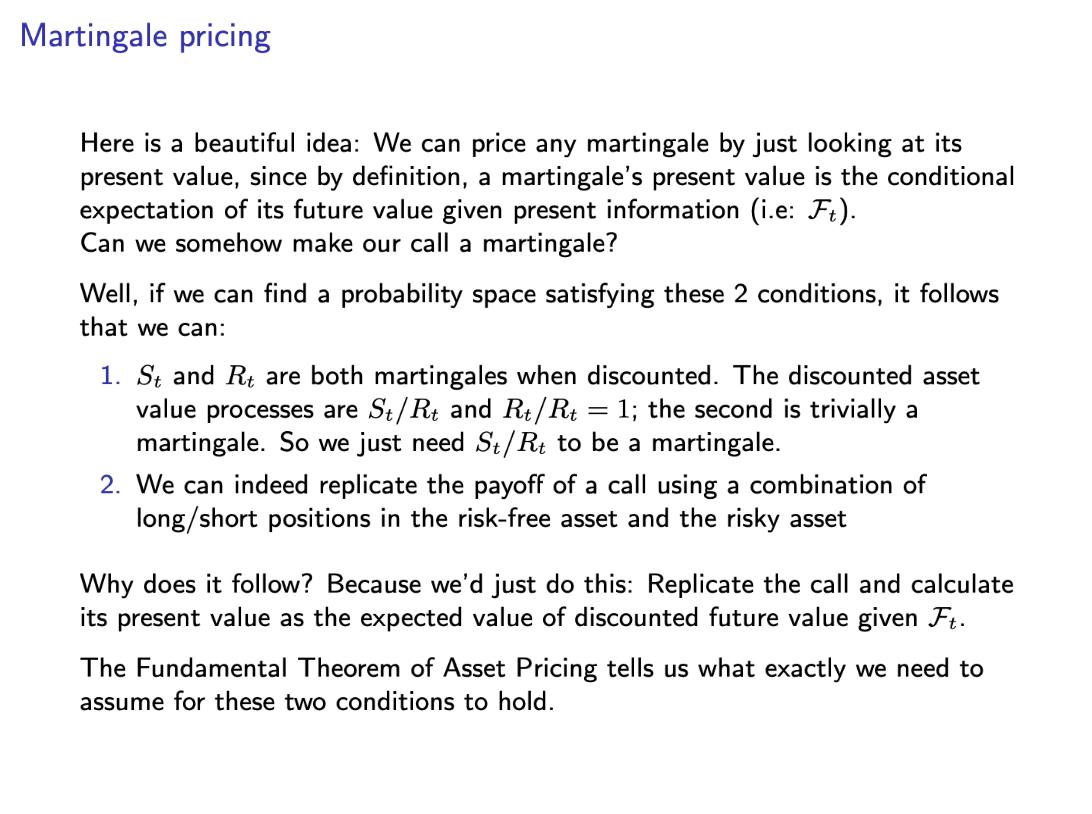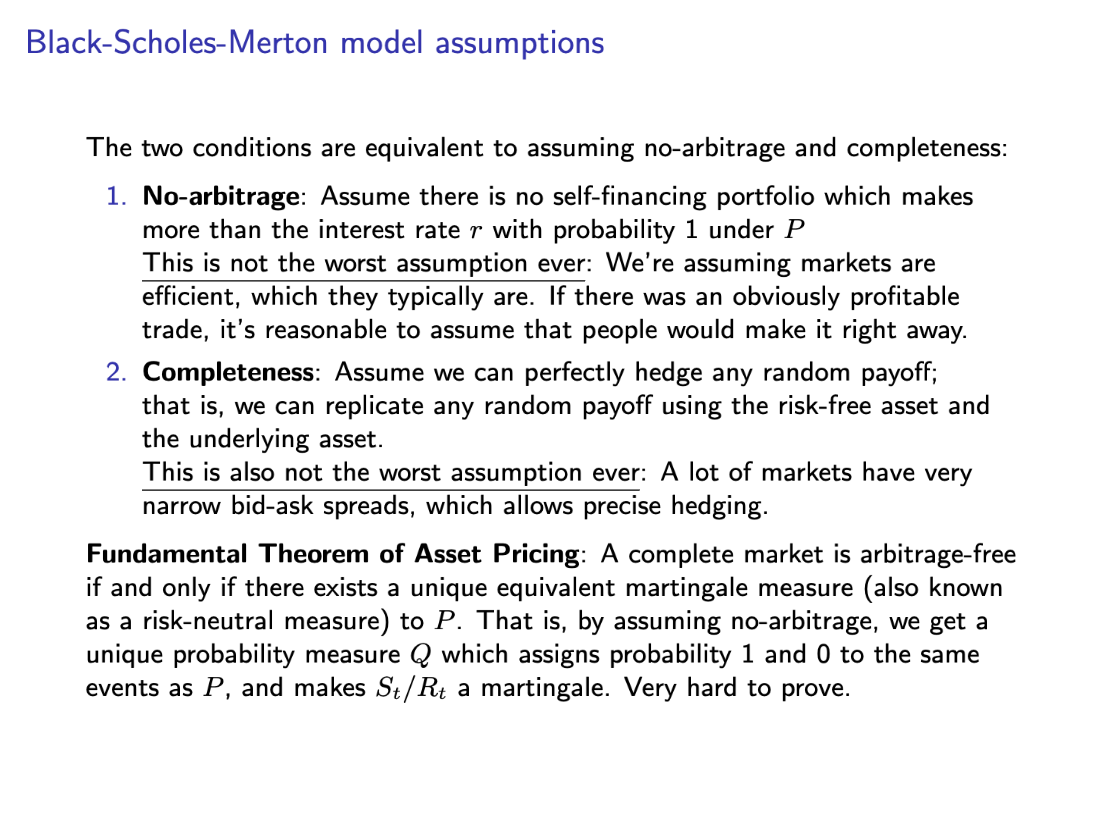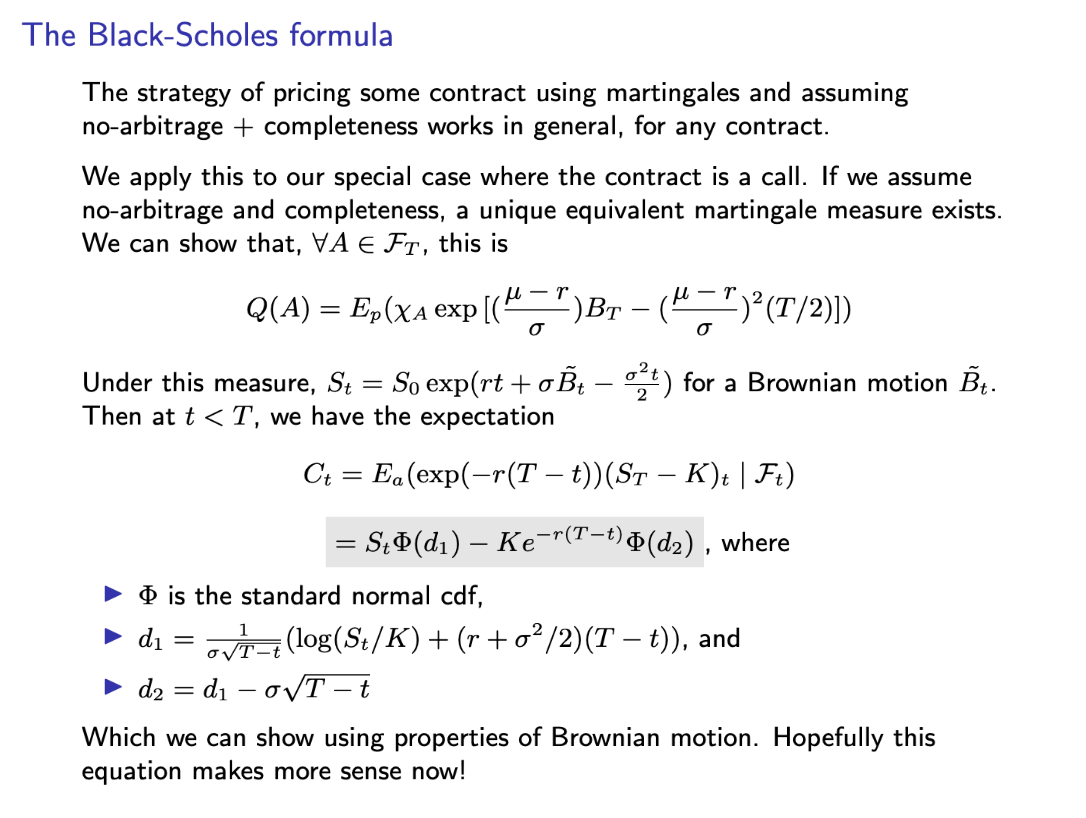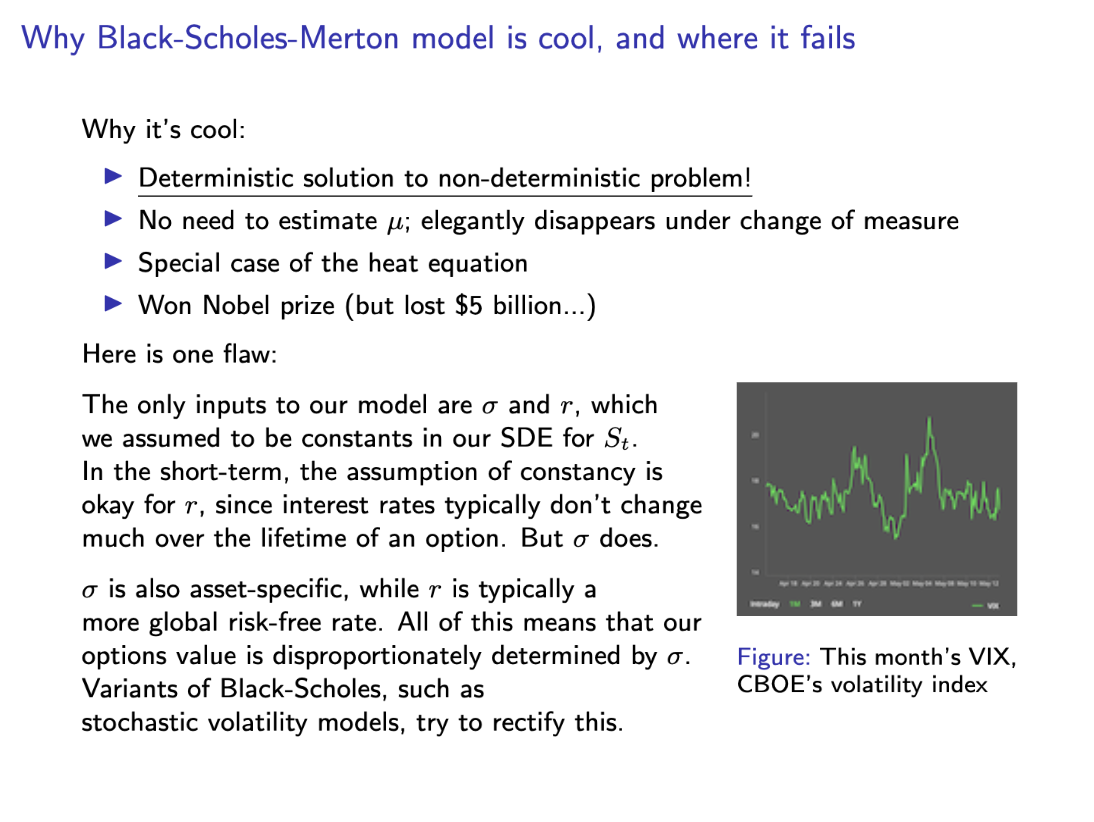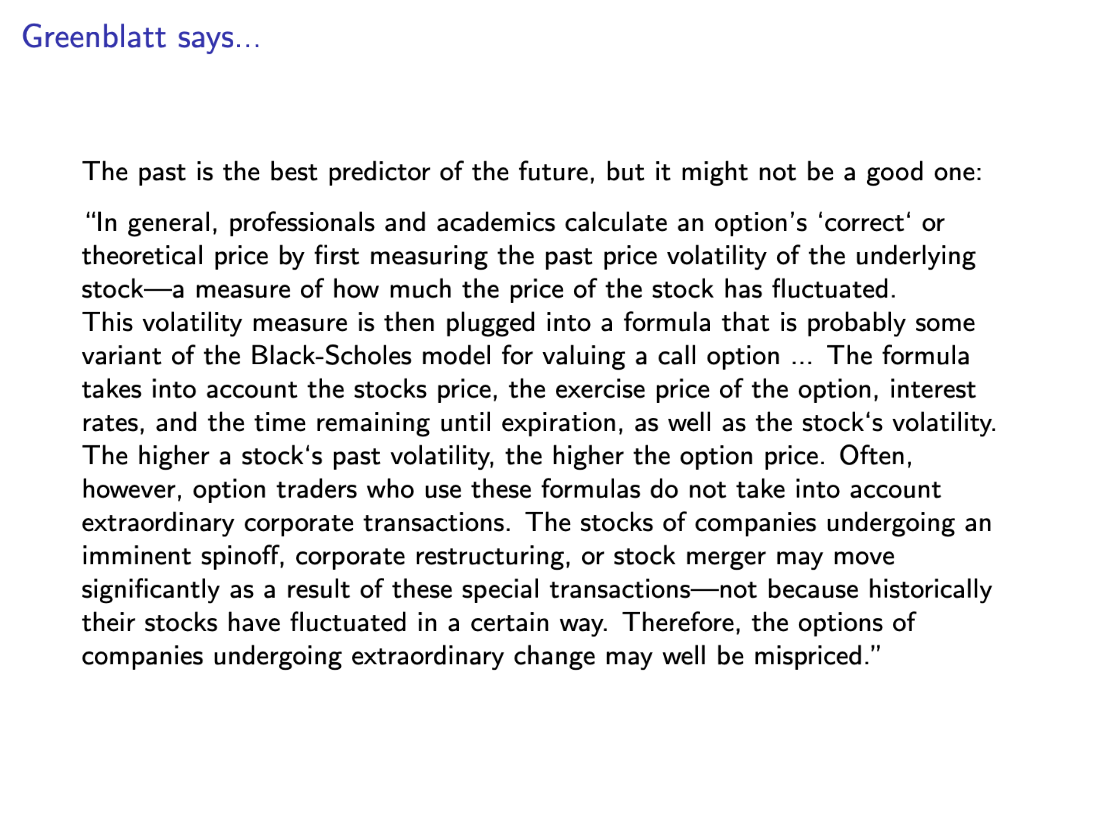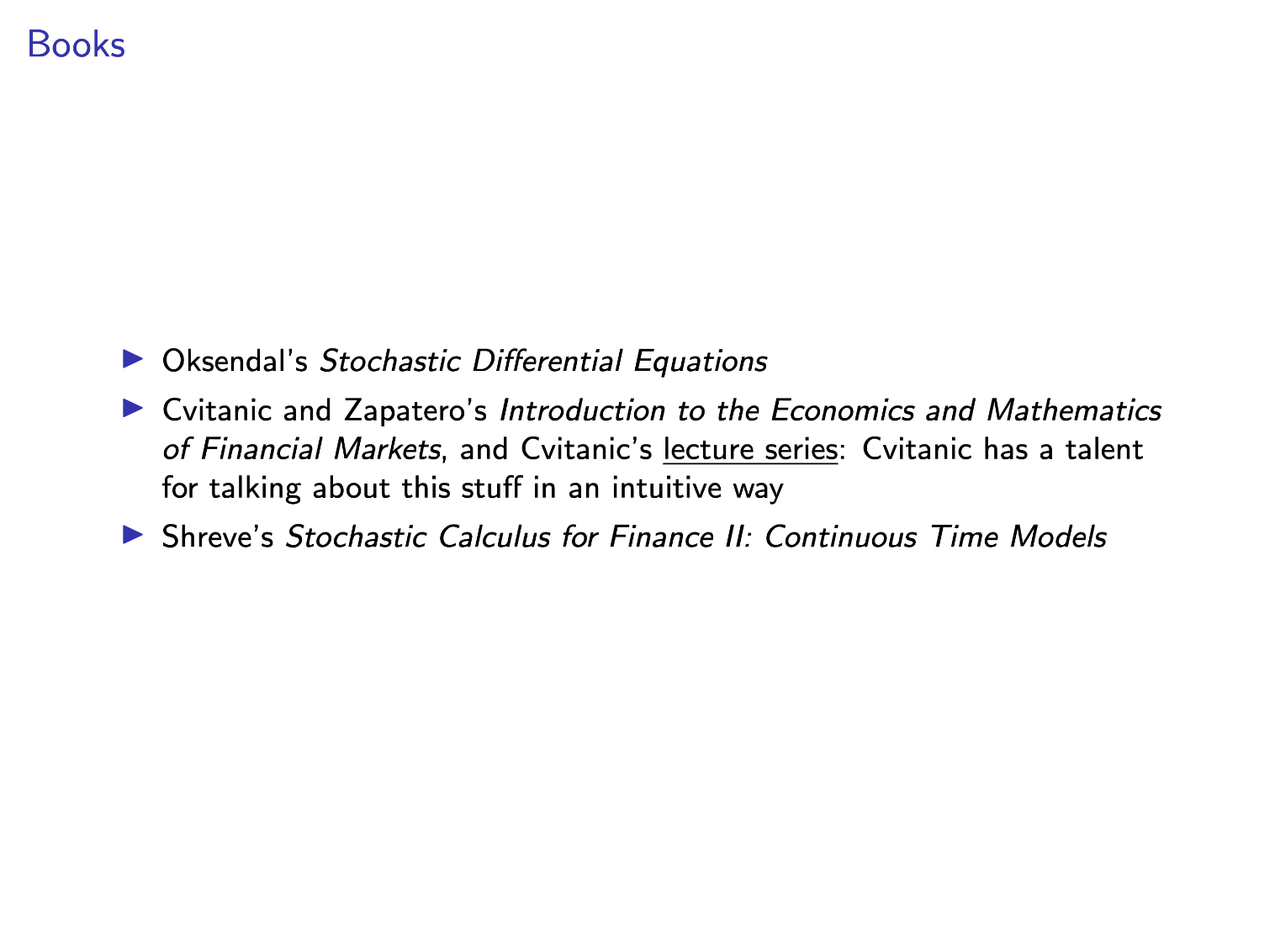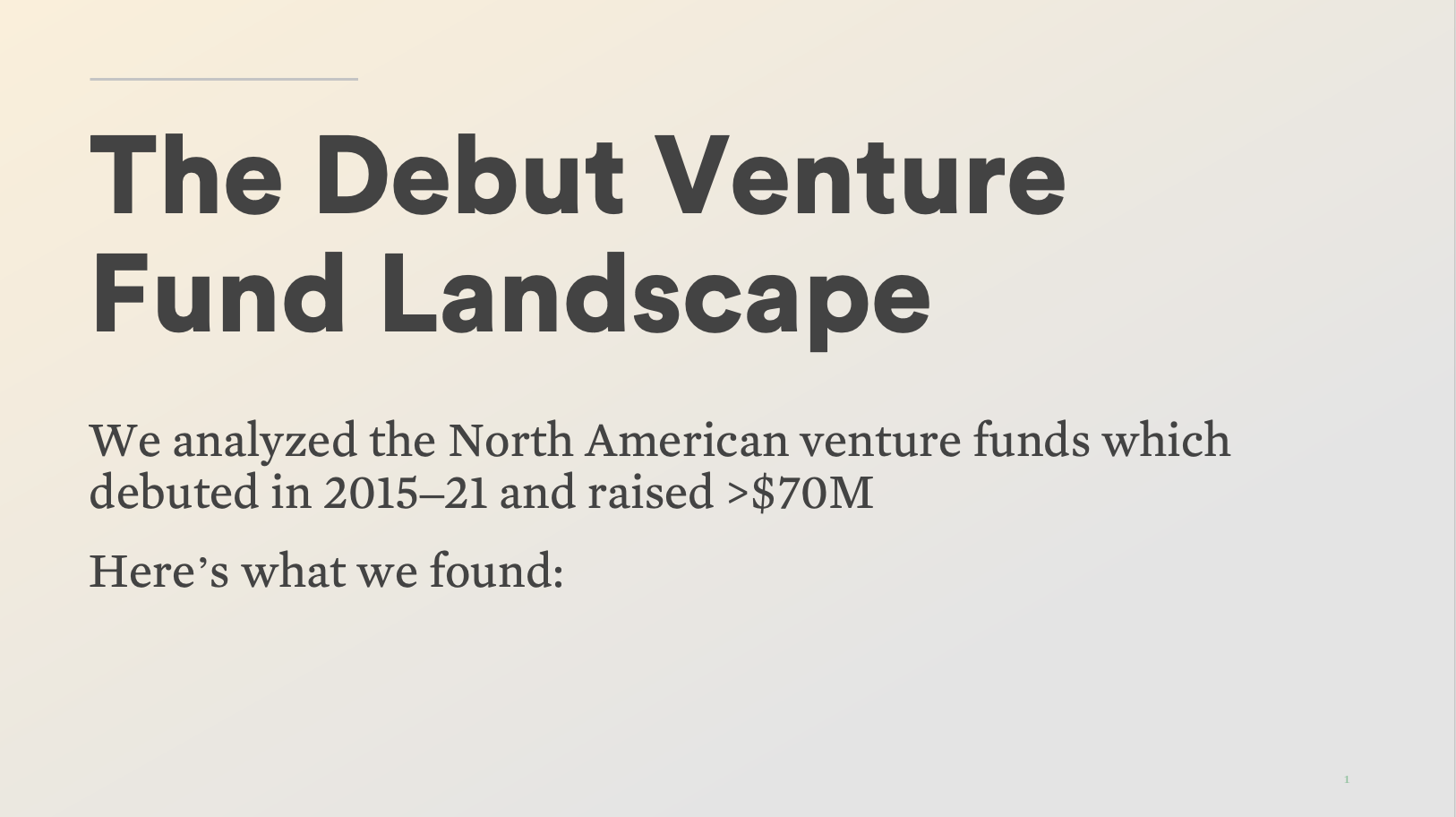I did two math/theory CS seminars this semester. One was on Simplicial Algebra, and one was on Spectral Graph Theory. I gave some talks for these seminars and wanted to put them here. Really massive thank you to Ivan, Ekene, and Binghui for leading them! I had a great time. :)
The first talk I gave is about topological data analysis and inference; specifically, about geometric sampling, metric measure spaces, and probability theory in barcode space. It follows sections 3.2–3.3 of Rabadan and Blumberg's Topological Data Analysis for Genomics and Evolution. You can find my notes here.
The second is about Cheeger’s inequality (inequalities are always pretty cool tbh), which is a fundamental result in spectral graph theory connecting the second smallest eigenvalue of the graph Laplacian with the conductance of a graph, both of which help us characterize a special type of graph called an expander. I made a presentation, which you can flip through below. You can also find this presentation, as well as the other talks from the Spectral Graph Theory seminar, on Columbia TCS group’s website here.
The third one is about an application of tools from topological data analysis to viral evolution, specifically viral recombination in HIV. It follows pages 303–324 from Rabadan and Blumberg. It’s pretty cool to see how barcode diagrams and zigzag persistence diagrams might actually be useful. You can find my notes here.
